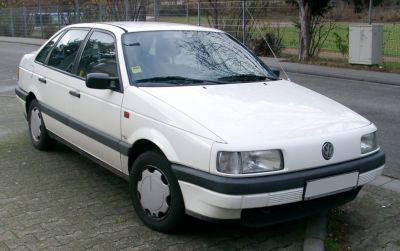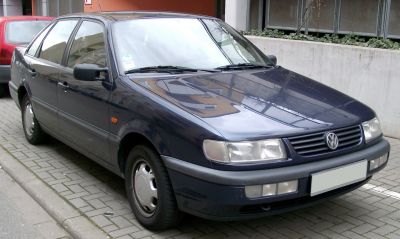 2001 Toyota Allion Dimensions, Size & Specs
2001 Toyota Allion Dimensions, Size & SpecsMeasurements of the 2001 Toyota Allion, engineered for optimal performance and comfort
| Dimensions | |
|---|---|
| Length: | 4600 mm181.1 in15.1 ft |
| Width: | 1695 mm66.7 in5.6 ft |
| Height: | 1470 mm57.9 in4.8 ft |
| Ground Clearance: | 160-165 mm6.3-6.5 in0.5-0.5 ft |
| Weight Specifications | |
| Curb Weight: | 1140-1280 kg2513-2822 lbs |
| Maximal permitted Weight: | 1415-1555 kg3120-3428 lbs |
| Tire Specifications | |
| Rims Size: | 14-inch rims:
|
| Tire Size: |
|
The Toyota Allion sedan, produced from 2001 to 2004, represents a well-balanced compact executive car designed to provide practical urban mobility while maintaining comfort and efficiency. Measuring 4600 mm (181.1 inches) in length, 1695 mm (66.7 inches) in width, and 1470 mm (57.9 inches) in height, the Allion features a sleek, aerodynamic profile suitable for city streets and highways alike. Its moderate dimensions place it comfortably within the compact sedan segment, offering ample interior space without compromising maneuverability.
The vehicle's curb weight ranges between 1140 to 1280 kilograms (2513 to 2822 pounds), reflecting different trim levels and equipment options while contributing to a balanced driving experience with efficient fuel consumption. The maximum gross weight varies from 1415 to 1555 kilograms (3122 to 3427 pounds), ensuring safe carrying capacity for passengers and cargo.
Ground clearance is set between 160 to 165 mm (6.3 to 6.5 inches), allowing for comfortable handling over typical road surfaces and minor obstacles without sacrificing stability. Rolling on 14-inch rims sized 6J x 14, the Allion runs on 185/70 R14 tires, which provide a good combination of road grip, ride comfort, and fuel efficiency.
Overall, the Toyota Allion 2001-2004 generation is a practical and versatile sedan that suits drivers seeking reliable daily transportation with moderate dimensions suited for both city and suburban environments. Its well-proportioned size, combined with a balanced weight and ground clearance, makes it an appealing choice among compact sedans in its class, delivering a blend of comfort, functionality, and handling.
Discover the standout features that make the 2001 Toyota Allion a leader in its class
Have a question? Please check our knowledgebase first.
The 2001 Toyota Allion first generation measures 4600 mm (181.1 inches) in length, 1695 mm (66.7 inches) in width, and 1470 mm (57.9 inches) in height. These dimensions place it firmly within the compact sedan class, offering a balanced footprint that suits urban and suburban driving. The length of 4600 mm provides ample cabin space, while the moderate width of 1695 mm ensures the vehicle is maneuverable in tighter spaces without sacrificing interior comfort. Its height of 1470 mm allows for a comfortable headroom for passengers and contributes to a low aerodynamic profile which helps with fuel efficiency and driving stability.
The curb weight of the 2001 Toyota Allion ranges from 1140 kg to 1280 kg (2513 to 2822 lbs), depending on configuration and optional equipment. The maximum weight, which includes the vehicle's weight plus passengers, cargo, and other load, ranges from 1415 kg to 1555 kg (3122 to 3428 lbs). This weight range reflects a lightweight design typical for compact sedans, facilitating fuel economy, nimble handling, and ease of driving. The variation in weight is commonly due to different trims and engine options that might add or remove components, as well as the type of equipment fitted during production.
The ground clearance of the 2001 Toyota Allion first generation is between 160 mm and 165 mm (6.3 to 6.5 inches). This ride height is quite typical for compact sedans, striking a compromise between ease of getting in and out, stability on the road, and the ability to handle minor road obstacles like speed bumps and potholes. The ground clearance level is sufficient for most urban and highway conditions but is not designed for off-road driving. It allows the vehicle to have a lower center of gravity contributing to better handling dynamics and reduced body roll during cornering.
The 2001 Toyota Allion first generation comes equipped with rims sized 6J x 14 inches and tires sized 185/70 R14. This means the rims have a width of 6 inches and a diameter of 14 inches, while the tires have a width of 185 mm, an aspect ratio of 70 (meaning the sidewall height is 70% of the tire's width), and fit 14-inch rims. These specifications provide a good balance between ride comfort, road grip, and cost-effectiveness. The relatively tall sidewalls help absorb road imperfections, improving ride comfort, while the tire size supports stable handling and braking performance in typical driving scenarios.
Yes, the 2001 Toyota Allion first generation fits comfortably into a standard residential garage. Given its length of 4600 mm (181.1 inches) and width of 1695 mm (66.7 inches), it is smaller than typical garage dimensions which usually exceed 5,000 mm (197 inches) in length and 2,400 mm (94.5 inches) in width. The vehicle's height of 1470 mm (57.9 inches) is also well below the typical garage clearance, which generally ranges between 2100 mm to 2400 mm (82.7 to 94.5 inches). This ensures that owners do not have to worry about squeeze or tight clearances when parking the Allion at home.
The 2001 Toyota Allion provides a spacious interior typical of a compact sedan, offering comfortable seating for five passengers. Its length and width dimensions translate into ample legroom and shoulder room in both the front and rear seats. While exact interior dimension data may vary, the Allion's efficient packaging and design prioritize passenger comfort, making it competitive with other compact sedans like the Honda Civic and Nissan Bluebird of its era. Rear seat passenger comfort is supported by the sedan body style, giving solid headroom and knee clearance. Overall, the interior space is well-suited for small families or daily commuting needs.
The 2001 Toyota Allion debuted as a new model in Toyota’s lineup and did not have a direct predecessor with the exact name; however, it can be seen as an evolution of Toyota's previous compact sedans such as the Toyota Corona or Caldina sedans in similar markets. Compared to these predecessors, the Allion featured slightly increased dimensions aimed at enhancing passenger comfort and interior space, with a length of 4600 mm (181.1 inches) and a width of 1695 mm (66.7 inches). This growth in size was part of Toyota's strategy to compete better in the compact sedan market by offering improved space and comfort without a significant increase in overall vehicle bulk.
The 2001 Toyota Allion sits competitively among early 2000s compact sedans. Its length of 4600 mm (181.1 inches), width of 1695 mm (66.7 inches), and weight between 1140 kg to 1280 kg (2513 to 2822 lbs) are comparable to rivals like the Honda Civic, Nissan Sunny, and Mazda Familia of the same timeframe. While some competitors might be slightly shorter or narrower, the Allion's dimensions provide a solid balance of interior space and manageable exterior size. Its curb weight is relatively light for its class, promoting good fuel economy and nimble handling, typical of Japanese compact sedans designed during that period.
The 2001 Toyota Allion first generation was designed as a stylish and practical compact sedan aimed primarily at the Japanese domestic market (JDM). It filled the gap between Toyota’s smaller Corolla and larger Camry models, targeting urban professionals and small families seeking comfort, reliability, and modern styling. The Allion’s design balances conservative elegance with practical features, focusing on fuel efficiency, ease of driving, and comfort over sporty performance. It features smooth, aerodynamic lines and a roomy interior for its class, reflecting Toyota’s approach to sensibly blend economy with luxury touches in a compact footprint.
The 2001 Toyota Allion was typically equipped with inline 4-cylinder engines ranging from 1.5 to 1.8 liters, designed to offer a balance between performance and fuel economy. Fuel efficiency varied depending on the engine choice and transmission but generally ranged from approximately 12 to 16 km/l (28 to 38 mpg US) under Japanese driving test cycles, which translates to respectable figures for a compact sedan of its time. These engines provided reliable everyday driving performance suitable for city and highway use. The Allion often came with options for both manual and automatic transmissions, catering to a broad range of driver preferences.
Discover similar sized cars.

| Production: | 1972-1976 |
|---|---|
| Model Year: | 1972 |
| Length: | 4620 mm181.9 in |
| Width: | 1690 mm66.5 in |
| Height: | 1425 mm56.1 in |

| Production: | 1988-1993 |
|---|---|
| Model Year: | 1988 |
| Length: | 4573-4595 mm180.0-180.9 in |
| Width: | 1705 mm67.1 in |
| Height: | 1428-1480 mm56.2-58.3 in |

| Production: | 1993-1996 |
|---|---|
| Model Year: | 1993 |
| Length: | 4605 mm181.3 in |
| Width: | 1720 mm67.7 in |
| Height: | 1430 mm56.3 in |

| Production: | 1994-1998 |
|---|---|
| Model Year: | 1994 |
| Length: | 4595 mm180.9 in |
| Width: | 1695 mm66.7 in |
| Height: | 1460 mm57.5 in |

| Production: | 2003-2009 |
|---|---|
| Model Year: | 2003 |
| Length: | 4630 mm182.3 in |
| Width: | 1760 mm69.3 in |
| Height: | 1480 mm58.3 in |

| Production: | 2015-2017 |
|---|---|
| Model Year: | 2016 |
| Length: | 4625 mm182.1 in |
| Width: | 2029-2044 mm79.9-80.5 in |
| Height: | 1480 mm58.3 in |

| Production: | 2016-2019 |
|---|---|
| Model Year: | 2016 |
| Length: | 4625-4663 mm182.1-183.6 in |
| Width: | 1760 mm69.3 in |
| Height: | 1499 mm59.0 in |

| Production: | 2016-2019 |
|---|---|
| Model Year: | 2016 |
| Length: | 4631 mm182.3 in |
| Width: | 1760 mm69.3 in |
| Height: | 1503 mm59.2 in |
